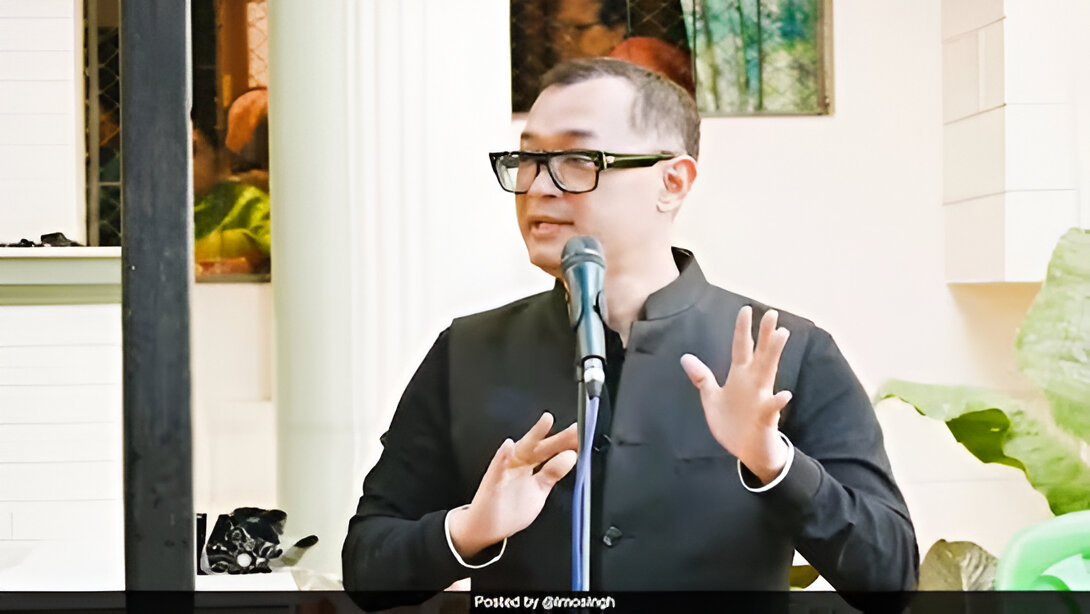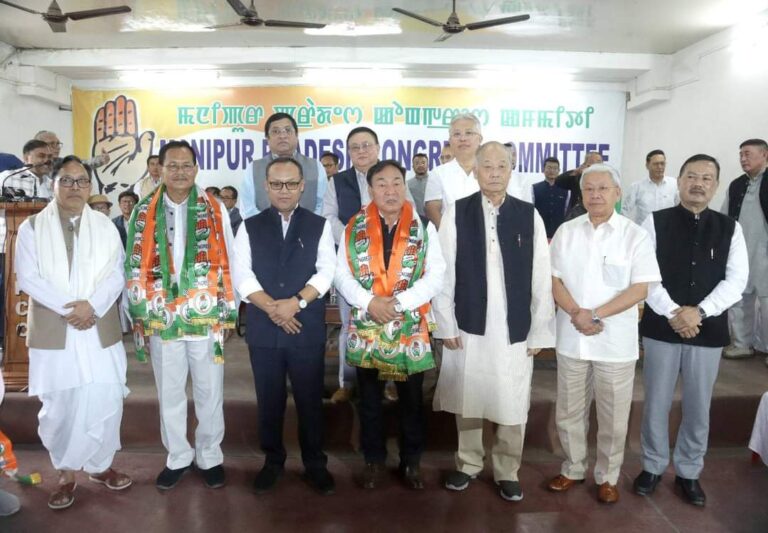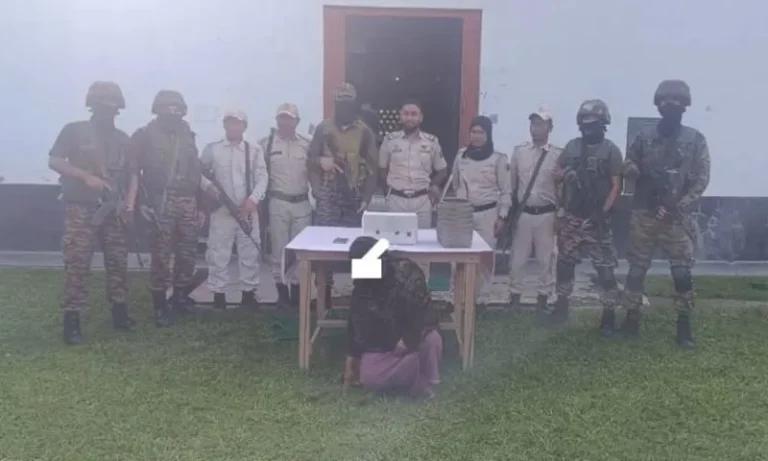Manipur MLA Advocates for Transparent and Inclusive Delimitation Process
In a recent development, Manipur MLA Rajkumar Imo Singh has called upon Union Home Minister Amit Shah to ensure a transparent and inclusive delimitation process in the state. Singh emphasizes the importance of addressing critical issues, such as completing the National Register of Citizens (NRC) and scrutinizing electoral rolls, to safeguard the rights of the indigenous population
Understanding Delimitation: A Brief Overview
Delimitation refers to the act of redrawing the boundaries of electoral constituencies to reflect changes in population and ensure equitable representation. This process is fundamental in a democracy, as it ensures that each vote carries equal weight, preventing discrepancies that can arise from population shifts over time. In India, the Delimitation Commission, an independent body, is responsible for carrying out this exercise based on the latest census data.India Today NE
The Context: Manipur’s Socio-Political Landscape
Manipur, nestled in the northeastern part of India, is a mosaic of diverse ethnic communities, each with its unique cultural heritage. This rich diversity, while a strength, has also led to intricate socio-political dynamics. Over the past few years, the state has witnessed disturbances and turmoil, underscoring the need for a fair and transparent delimitation process that respects the rights of all communities.India Today NE
Rajkumar Imo Singh’s Appeal: Key Highlights
Rajkumar Imo Singh’s appeal to the Union Home Minister is rooted in the desire to ensure that the delimitation process in Manipur is both fair and inclusive. His key concerns and suggestions include:mint+4The Economic Times+4Devdiscourse+4
- Completion of the National Register of Citizens (NRC): Singh underscores the importance of completing the NRC in Manipur to identify and address the issue of illegal immigrants. This step is seen as crucial to ensuring that the voter base comprises genuine citizens, thereby preserving the rights of the indigenous population. The Economic Times+1Devdiscourse+1
- Scrutiny of Electoral Rolls: He advocates for a thorough examination of the electoral rolls to eliminate any discrepancies, such as the presence of bogus voters. By linking voter IDs with Aadhaar, Singh believes that the authenticity of the voter list can be enhanced, ensuring that only eligible citizens participate in the electoral process. Devdiscourse
- Addressing Security Concerns: Singh has previously expressed concerns over the effectiveness of central forces in maintaining peace in Manipur. He has urged the central government to reassess the deployment of these forces, suggesting that if they remain ineffective, they should be withdrawn to allow state forces to take charge. This perspective highlights the need for a secure environment to conduct a fair delimitation process. The New Indian Express+2India Today+2mint+2
- Ensuring Inclusivity: Given Manipur’s diverse ethnic composition, Singh emphasizes that the delimitation process should be conducted without bias towards any specific community or ethnic group. This approach aims to ensure that the process is transparent and that the political representation is equitable across all communities. India Today NE
The Importance of a Fair Delimitation Process
A transparent and inclusive delimitation process is vital for several reasons:The Economic Times+2The Economic Times+2India Today NE+2
- Equitable Representation: It ensures that all communities, regardless of their size, have fair representation in legislative bodies. This balance is crucial in a state like Manipur, where multiple ethnic groups coexist.The Economic Times+8India Today NE+8www.ndtv.com+8
- Strengthening Democracy: By reflecting the true demographic composition of the state, delimitation strengthens the democratic process, ensuring that governance is more responsive to the needs of the populace.
- Preventing Conflict: Fair representation can mitigate feelings of marginalization among communities, thereby reducing the potential for conflict and promoting social harmony.
Looking Ahead: The Path to Transparent Delimitation
For the delimitation process in Manipur to be truly transparent and inclusive, the following steps are essential:
- Comprehensive Data Collection: Utilizing the latest census data ensures that constituency boundaries reflect current population distributions. This accuracy is foundational to fair representation.
- Public Participation: Engaging with local communities, civil society organizations, and other stakeholders can provide valuable insights and foster trust in the process. Public consultations can help address concerns and incorporate diverse perspectives.
- Technological Integration: Implementing technology, such as Geographic Information Systems (GIS), can aid in creating precise and unbiased constituency maps. Additionally, linking voter IDs with Aadhaar can enhance the integrity of the electoral rolls.Devdiscourse
- Independent Oversight: An autonomous body overseeing the delimitation process can ensure that it is conducted without political interference, maintaining its impartiality and credibility.The Economic Times+3India Today NE+3Devdiscourse+3
Conclusion
Rajkumar Imo Singh’s appeal for a transparent and inclusive delimitation process in Manipur underscores the critical need to address foundational issues before undertaking such a significant exercise. By completing the NRC, scrutinizing electoral rolls, and ensuring a fair process, the state can move towards equitable representation for all its communities, thereby strengthening its democratic fabric.mint+4The Economic Times+4Devdiscourse+4
FAQs
- What is delimitation and why is it important?
Delimitation is the process of redrawing electoral boundaries based on population changes. It ensures fair representation by aligning the constituencies with current demographic realities, making sure that every vote is counted equally. - Why did the Manipur MLA call for a transparent and inclusive delimitation process?
The MLA’s call aims to prevent biases and ensure that all communities, especially historically marginalized ones, have equal representation. This transparency is key to maintaining trust in the democratic process. - How does transparency benefit the delimitation process?
Transparency builds trust by making the process open to public scrutiny, reducing the potential for political interference, and ensuring that decisions are made fairly and objectively. - What challenges can arise in implementing an inclusive delimitation process?
Challenges include ensuring data accuracy, managing political pressures, overcoming technical difficulties in redrawing boundaries, and raising public awareness to foster genuine participation. - How can India learn from other countries in improving its delimitation process?
By studying models in other democracies—such as independent commissions, strict guidelines, and the use of modern technology—India can adopt measures that ensure a more robust, fair, and transparent delimitation process.



